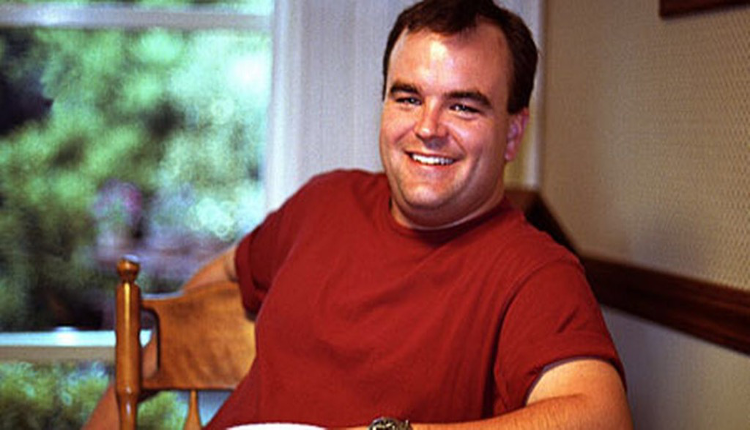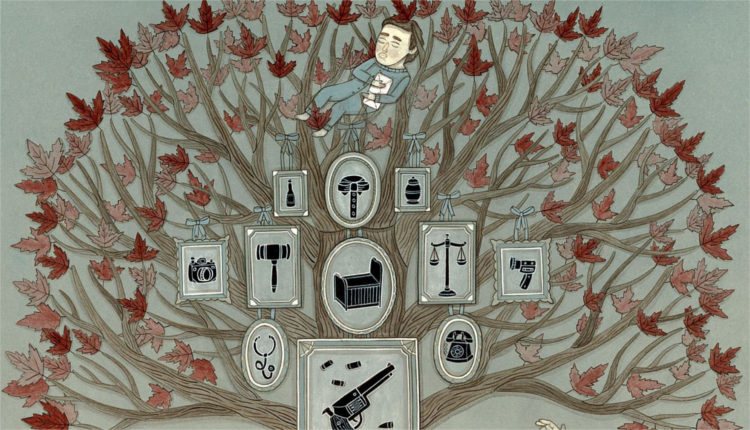Not a Tearjerker but a Tear Wrencher | Dear Zachary Turns 10
You always remember the films you cried at. Whether it’s happy tears at the sight of a reunion long in the making, tears of sorrow after a character’s death or even weeping in terror at a horror movie it’s often a testament to the power of movies that we can cry at them. The first one for me was Shark Tale (don’t ask) but it wasn’t the last. For a while, documentaries were the only films that could draw any tears from me – Blackfish, Grizzly Man and Dear Zachary, A Letter to a Son About His Father, the latter particularly affecting. Some films are called tearjerkers. Dear Zachary wrenches the tears from you, beating you about the head and body with the sum total of human misery.
Dear Zachary, A Letter to a Son About His Father is exactly what it says on the tin. A one man production by Kurt Kuenne, the film begins by looking at the life of Andrew Bagby, Kuenne’s best friend since childhood. Bagby’s life was tragically cut short after he broke up with his unstable girlfriend Shirley Jane Turner who promptly shot him to death and fled to Canada. While in custody Turner revealed she was pregnant with Bagby’s child, a boy she had named Zachary.
Kuenne began the film as a tribute to his best friend and it begins with a home movie feel as family and friends share memories of Bagby. About halfway through the film takes a desperate turn as Bagby’s parents seek to secure custody of the newly born Zachary from a woman they regard as dangerous, obsessive and possessive. Things only get darker and more desperate as Dear Zachary rattles towards it’s tragic and bleak conclusion. There is no happy ending in Dear Zachary. It’s a film about lives cut tragically short and the shattered lives of those left behind. It’s a raw account of one man’s grief at the senseless nature of a cruel and capricious universe.
I didn’t re-watch Dear Zachary for this article. I’m not even sure if I could. It’s a film that you only need to see once if even that. In this way it falls into a niche of films more famous for their reputation than their real merits. The likes of Henry: Portrait of A Serial Killer, Martyrs and all of Lars Von Trier’s films fall into the same category. With that said Dear Zachary is worth watching. The perceived injustices of Making A Murderer made folk heroes out of Steven Avery, Brendan Dassey and their lawyers. Dear Zachary does something similar with Andrew Bagby and the son he never knew.
Dear Zachary practically canonises Andrew Bagby. He was a well liked man by all accounts and his job as a doctor adds further credence to this flattering portrait. Kuenne, understandably for a man so close to the subjects of his film, does the opposite with Shirley Jane Turner. Turner is made into a villain from the get-go. Described as strange and possessive by Bagby’s parents Turner would cut a tragic figure in any other film. Mentally ill or even emotionally unstable women have always been used as an often misogynistic tool for narrative suspense and tension in fiction. But Dear Zachary is real life and as the film goes on it becomes harder and harder to sympathise with this clearly irresponsible and murderous woman.

Kuenne directed, wrote, narrated, produced, edited and composed the music for Dear Zachary. It’s in the editing where the film truly excels. In between the talking head interviews Kuenne inserts rapid fire montages to illustrate points that would normally take a long time to explain. From the slow, lethargic pace of Canadian law to the final, crowning tragedy of the film Kuenne puts a great deal of shots – all barely more than a second long –together while breathlessly and tonelessly narrating the whole thing. It’s a masterclass in how editing can get so much information across in such a small amount of time. It’s also an emotional gut punch.
On August 18, 2003 Shirley Jane Turner took the 13 month old Zachary and jumped into the Atlantic Ocean, killing them both. The sequence of events that led up to this as well as the murder-suicide itself is documented in the montage style that until that point was used to explain things like legal technicalities and Turner’s movements. As Kuenne rushes through these horrible and, worse, preventable events his voice cracks and the abyss that is his grief yawns open so wide that all the love and sympathy in the world couldn’t hope to fill it.
The twist of the knife in Dear Zachary is that all of the events that led up to the deaths were preventable. The Canadian legal process is slow or at least it was in 2003. Turner took advantage of the kindness of a judge and psychiatrist to aid in her bail process and in the visitation rights she was granted with Zachary’s grandparents. David and Kathleen Bagby’s desperation to save their grandson from their son’s murderer is palpable. At one point David admits he was ready to kill Turner so that Zachary would finally be safe. He never got the chance.

Dear Zachary, A Letter to A Son About His Father is a raw, open wound of a film. It bleeds pathos and trauma. No other dissection of grief has felt at once both blunt and sharp, biased but honest and painful but cathartic. If there is one good thing that came of it all it was the passing of a bill in the Canadian parliament called Zachary’s Law. It encourages the courts to consider the level of danger an accused parent may pose to their children. It’s not enough though. Nothing can ever really heal the wounds opened up by this true crime saga.
Dear Zachary is, in my opinion, the greatest example of film’s power distilled to its most brutal and affecting form. They say time heals all wounds but sometimes memories, especially recorded ones, only grow sharper and cut in different ways.

